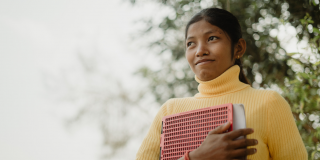
For many of us, education is something that we often take for granted. We rely on our partners to reach children across the globe who historically haven’t had quality education.
From using technology to deliver high quality education in Malawi to developing low-cost teaching aids with recycled materials in Rwanda, VSO programs were able to reach and support some of the most marginalized children in some of the most remote communities.
Still, 250 million children remain out of school 1 and more than half of children in low-and middle-income countries cannot read or understand basic text by age ten. Focusing quality education for all is essential to staying on track to achieve the Sustainable Development Goals (SDGs). By tackling the intersecting barriers children face when accessing education and participating in learning, we can help them reach their full potential as they become the changemakers of the future.
Read below to learn how we work with our partners to create equal opportunities for inclusive education for marginalized children and youth.
Inequalities in education
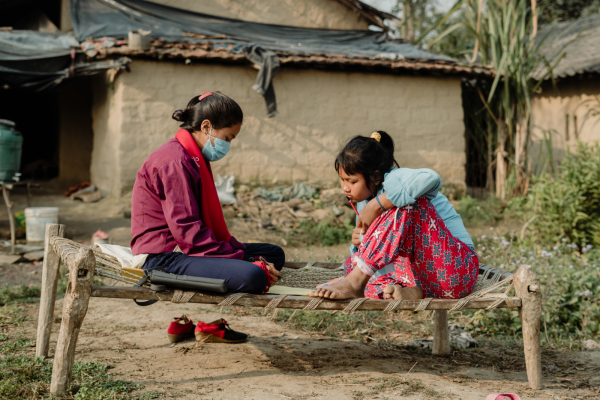
A contributing factor to social tension and conflict in communities is when there is inequality in basic services. This can include everything from access to a space in the classroom to being able to use essential healthcare facilities. As an organization that works in fragile contexts, this is something that we must be mindful of when implementing our volunteering for development approach and supporting people to achieve community cohesion.
Providing quality education and access to education for all is a tool that has proven to build a cohesive and fairer society. Through the implementation of VSO programs, this year we’ve been able to support learners in primary education to improve their literacy and numeracy by 22% and 11% respectively.
In a time where catastrophic world events have called for quick adaptation, VSO's approach is delivering impact and timely response for communities.
VSO’s Global Technical Lead for Foundational Learning and Systems Strengthening, Purna Kumar Shrestha, commented:
“When the education systems are marked by teacher shortages, and millions of children are out of schools, VSO programs have played a pivotal role in delivering education services to the most marginalized children, especially those who are out of school, living in poverty and affected by conflict and disability."
Uganda offered hope for refugees
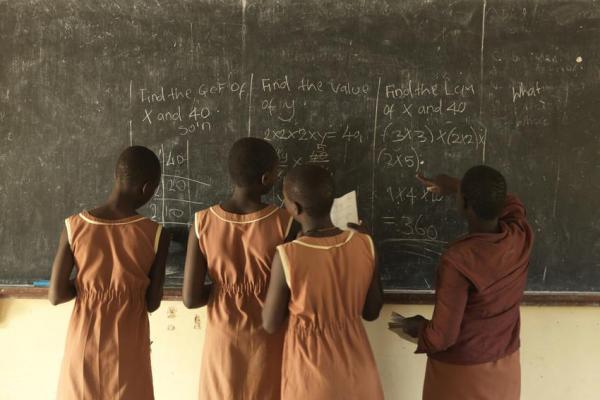
In Uganda, VSO is working within the Bidibidi Refugee Settlement. This is a refugee camp covering 250 square kilometers of the eastern half of Yumbe District, stretching southward from the South Sudanese border and spilling over into Moyo District along the western bank of the Kochi River.
Divided into five zones, the camp has become home to 270,000 South Sudanese refugees who have had no choice but to flee the ongoing civil war happening in their country. We have worked to support Early Childhood Care and Education (ECCE), and in turn, improved the access to inclusive learning for children under six years old, a period where brain development is crucial.
Through our work, we have been able to provide training and mentorship to caregivers, schools, teachers, and the wider community to raise awareness on the importance of pre-primary and early grade education.
The development of learning centers with the support of parents, local government, and education partners, as well as the creation of low-cost teaching materials, have made child-centered methodologies easier for caregivers and teachers to reach and support children who are often left behind in these settings.
Getting Pakistan’s out of school children back in the classroom
Currently, there are an estimated 23 million children in Pakistan who are unable to attend school. This is the second highest figure in the world, and many of these children are refugees whose families have fled to Pakistan to escape armed conflict in Afghanistan.
As the country shares the largest border with Afghanistan, provinces such as Balochistan and Khyber Pakhtunkhwa are disproportionately affected by neighboring crises. Pakistan aims to provide basic protection and necessities, such as access to public health and education systems, but the increase in population has put a constraint on resources.
The Multi-Year Resilience Programme (MYRP) project have worked to establish catch-up learning centers to help young children regain the confidence of being in the classroom, and ultimately make them think about their futures as adults. Through changing attitudes towards gender inequality, VSO is also reaching young girls, who are often left behind when it comes to their schooling. By empowering the children of today, we will create a better future for all.
Promoting digital learning for girls in Mozambique
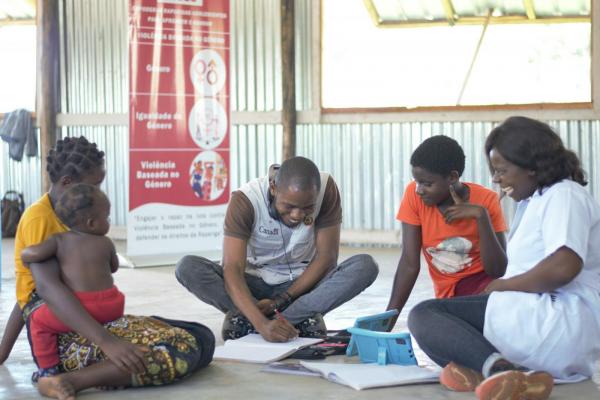
Since 1998, VSO has been working across Mozambique strengthening inclusive and quality education systems across the country. However, a history of conflict has been a key factor in creating social tension around access to basic education services. When children are not able to go to school and fall behind on their studies, they can undoubtedly face more barriers in adulthood.
Through our Empowering Adolescent Girls to Learn and Earn (EAGLE) project, we aim to reach 3,000 out of schoolgirls to help improve their literacy, numeracy, entrepreneurship, and life skills. With more than 60% of people in Mozambique living below the poverty line, a focus on education can be the gateway to a more independent and flourishing life.
Across the project, we have been providing girls with school kits which include exercise books, pens, and a tablet to support digital learning. Technology can be a great tool for consistent learning, and girls can now access learning from their homes if unable to attend classes in person.
By creating equal opportunities for inclusive education for marginalized children and youth, we do not just create a lasting chance in their lives, but also contribute to peace and social cohesion and provide opportunities for them to thrive.
Read more
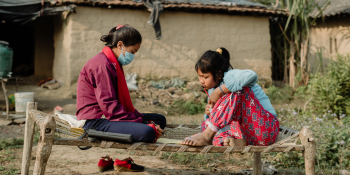
How social tension impacts education: Support learning for lasting peace
For many of us, education is something that we often take for granted. Providing quality education and access to education for all is a tool that has proven to build a cohesive and fairer society.
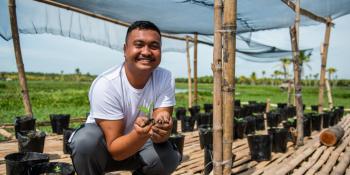
Transforming individuals, communities and societies through active citizenship
Volunteers are an incredible resource, who are making a vital contribution to the delivery of the sustainable development goals. They are also stepping up to question, to challenge, to hold decision makers to account for their actions.
From Kenya to Ethiopia, Bangladesh, and the Philippines, meet the volunteer igniting change across the world
Vilma Esoto is a remarkable national volunteer working hard in the Philippines, where she ensures that out-of-school youth get the relevant mentorship and leadership skills they deserve, to achieve a prosperous future.
